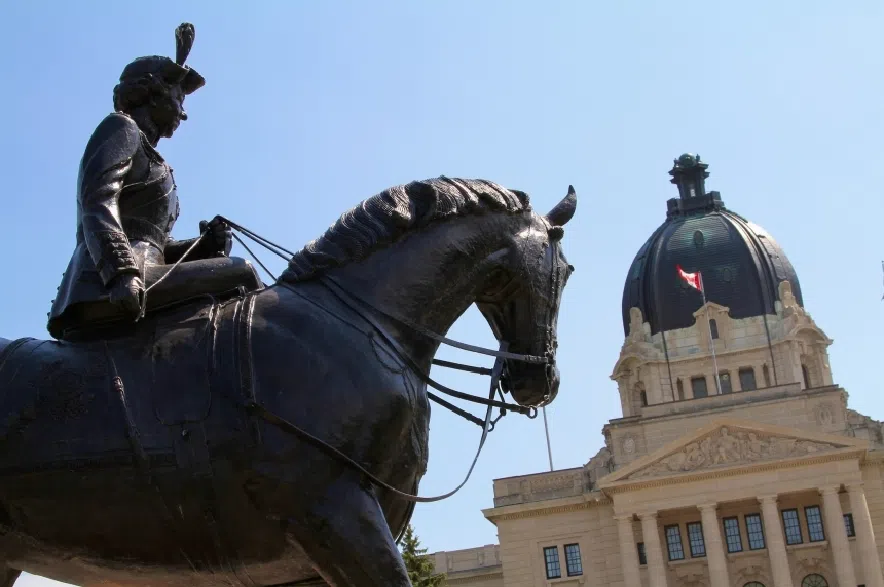The Saskatchewan Marshals Service is closer to reality thanks to new legislation introduced on Tuesday.
The new provincial police force, which was first announced in 2022, is expected to become operational in 2026 with 70 officers at an annual cost of about $20 million.
According to the provincial government, the new force will primarily police rural and remote areas with high crime rates, tackling issues including gangs and illegal weapons. The service will also be mandated to find and arrest prolific criminals who are wanted on warrants, and provide support to other police forces operating in Saskatchewan.
The legislation introduced Tuesday officially designates the marshals service as a police service in the province, creates a chief marshal position, and sets out the details for the service’s structure, governance and operations. It also establishes a three-member advisory council to provide advice and guidance to the minister “on how to exercise their powers and duties related to the marshals service.”
Recruitment for the chief marshal began in September.
Paul Merriman, Saskatchewan’s minister for corrections, policing and public safety, said setting out the framework is an important step in creating an “independent, made-in-Saskatchewan” police force.
“This legislation establishes a strong legislative bedrock upon which we can build the Saskatchewan Marshals Service into an effective, modern police organization that also supports existing municipalities, First Nations and national policing services,” Merriman said in a statement.
The government noted the RCMP will still be “the provincial police service of jurisdiction” after the marshals service launches, but the marshals will have policing authority throughout the province.
The legislation introduced Tuesday also took steps to increase oversight on police in Saskatchewan by simplifying the warrant process used by the province’s Serious Incident Response Team when it requests a judge to compel evidence from a third party.
“These new provisions balance the right to privacy with SIRT’s ability to conduct investigations into instances where a police officer or special constable is involved in a serious incident,” a release from the government read.











